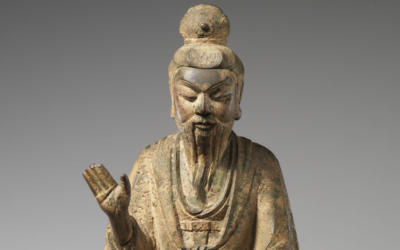I. Introduction
Mindfulness is the practice of bringing one’s attention to the present moment, without judgment. It is a simple yet powerful skill that can have numerous benefits for stress reduction and improved mental health.
One of the main benefits of mindfulness is its ability to reduce stress. Stress is a normal part of life, but when it becomes chronic, it can have serious negative impacts on our physical and mental health. Mindfulness can help to reduce stress by teaching us to be more present in the moment, rather than dwelling on the past or worrying about the future. This can help us to better manage our emotions and respond to stress in a healthy way.
In addition to stress reduction, mindfulness has been shown to improve mental health in a number of ways. It can help to reduce symptoms of depression and anxiety, and can even improve overall well-being and quality of life. This is likely because mindfulness helps us to develop a greater sense of self-awareness, which can lead to a better understanding of our own thoughts and emotions.
Overall, mindfulness is a simple yet powerful tool that can have a significant impact on our stress levels and mental health. By incorporating mindfulness into our daily lives, we can learn to manage stress more effectively and improve our overall well-being.
II. Stress reduction
Mindfulness is a powerful tool for reducing stress. When we are stressed, our minds are often racing with thoughts about the past or the future, which can make it difficult to focus on the present moment. Mindfulness helps us to bring our attention back to the present moment and let go of these stress-inducing thoughts.
One way that mindfulness helps to reduce stress is through the practice of mindfulness meditation. During mindfulness meditation, we focus on our breath or a mantra, and when our minds wander (which is natural), we gently bring our attention back to the present moment. This helps us to develop the ability to stay present and not get carried away by our thoughts.
Another way to practice mindfulness is through activities such as yoga or tai chi, which involve focusing on the present moment and the movements of the body. Engaging in these activities can help to calm the mind and reduce stress.
There are also many simple mindfulness techniques that can be incorporated into our daily lives to help reduce stress. For example, we can practice mindful breathing by taking a few deep breaths and focusing on the sensation of the breath moving in and out of our bodies. We can also try mindful walking, which involves paying attention to our surroundings and the sensation of our feet hitting the ground as we walk.
By incorporating mindfulness into our daily lives, we can learn to manage stress more effectively and improve our overall well-being.
III. Improved mental health
Mindfulness has been shown to have numerous benefits for mental health. Research has found that mindfulness can help to reduce symptoms of depression and anxiety, and can even improve overall well-being and quality of life.
One of the ways that mindfulness improves mental health is by helping us to develop a greater sense of self-awareness. When we practice mindfulness, we learn to pay attention to our thoughts and emotions without judgment. This can help us to better understand our own mental states and respond to them in a healthy way.
Mindfulness can also help to reduce negative thought patterns, which can contribute to symptoms of depression and anxiety. By paying attention to our thoughts in a non-judgmental way, we can learn to recognize when we are engaging in negative thought patterns and take steps to change them.
In addition to its benefits for specific mental health conditions, mindfulness can also improve overall well-being and quality of life. When we are mindful, we are more present in the moment and able to fully engage with our experiences. This can lead to a greater sense of contentment and satisfaction with life.
Overall, the relationship between mindfulness and mental health is a complex one, and more research is needed to fully understand the mechanisms at play. However, the evidence suggests that mindfulness can be a powerful tool for improving mental health and overall well-being.
IV. How to practice mindfulness
There are many different ways to practice mindfulness, and the best method will depend on individual preferences and needs. Some common methods include:
- Meditation: Meditation is a mindfulness practice that involves focusing on the breath or a mantra, and gently bringing the attention back to the present moment when the mind wanders. There are many different types of meditation, including mindfulness meditation, loving-kindness meditation, and mantra meditation.
- Yoga: Yoga is a physical practice that involves moving the body through various poses and focusing on the breath. It is often practiced in conjunction with mindfulness meditation, and can be a powerful tool for reducing stress and improving mental health.
- Paying attention to breath or surroundings: It is possible to practice mindfulness in any moment, simply by bringing our attention to our breath or our surroundings. This can be a simple yet effective way to cultivate mindfulness in our daily lives.
- Other practices: There are many other practices that can be incorporated into a mindfulness practice, including journaling, coloring, or walking in nature. The key is to find activities that allow you to focus on the present moment and bring your attention back when it wanders.
Overall, the important thing is to find a mindfulness practice that works for you and to make it a regular part of your routine. With regular practice, you can learn to cultivate mindfulness and experience its many benefits for stress reduction and improved mental health.
V. Conclusion
In conclusion, mindfulness is a powerful tool for stress reduction and improved mental health. It is the practice of bringing one’s attention to the present moment, without judgment, and has been shown to have numerous benefits for both physical and mental well-being.
Mindfulness can help to reduce stress by teaching us to be more present in the moment and better manage our emotions. It can also improve mental health by reducing symptoms of depression and anxiety, and improving overall well-being and quality of life.
There are many ways to practice mindfulness, including through meditation, yoga, and simple activities such as paying attention to our breath or surroundings. The key is to find a practice that works for you and to make it a regular part of your routine.
So why not give mindfulness a try? Whether you’re dealing with stress or simply looking to improve your overall mental health, it can be a powerful tool to help you live a happier, healthier life.




